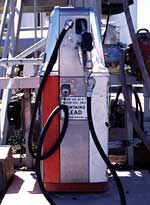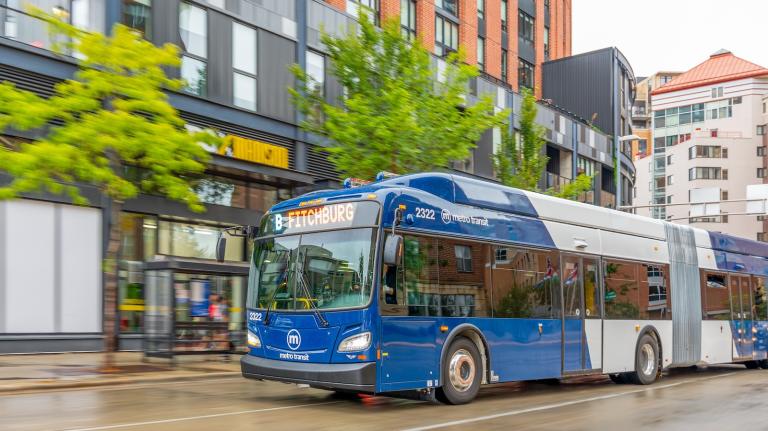That whining sound you hear is American consumers (formerly known as American citizens) fretting over the rising cost of gasoline.

Pump and circumstance.
The current national average price of gas — $1.41 per gallon — is a full 25 cents higher than it was merely four months ago, and analysts predict that the price could hit $1.80 per gallon before supplies catch up with demand, sometime later this summer.
That’s enough to make any SUV owner sweat. A person who bought one of those behemoth Ford Expeditions — ignoring the outcry of environmentalists and anyone else with even a lick of sense — may soon have to take out a second mortgage on his or her starter castle just to fill up the tank.
Or maybe Texaco will make payment easier by accepting, in addition to cash and credit, the transfer of one share of Yahoo! stock for each fill-up.
The truth is that while the price of gasoline is rising, it is still far from expensive. In March of 1998, gasoline hit a historic low of $1.07 per gallon — cheaper than it had been since 1920, when adjusted for inflation. But even the highest projection of $1.80 per gallon, which we may be paying this summer, pales in comparison to the inflation-adjusted price of $2.20 that we were paying back in 1980, after President Carter imposed an embargo on Iranian oil, following the fall of the Shah.
All of this whining about the price of gas is much ado about nothing, really. President Clinton has already released $125 million in federal heating assistance, to help lower-income families make it through the winter. And while increased fuel prices will contribute to a rise in the cost of such things as iceberg lettuce (which, as any nutritionist will tell you, is 99 percent water and 1 percent diesel fuel), the increase is expected to be temporary.
It’s that brevity, I think, that is the real cause for complaint.
Whenever the price of gas goes up, even just a little bit, I start to feel downright hopeful about the world. I’ll admit that this may be due to my living in Moab, Utah, a little tourist town of about 6,000 people that is besieged by over a million visitors each year. Experts are predicting that the temporary rise in gas prices may cause a downturn in summer travel this year. It’s a prediction that spawns a pleasant dreaming among residents of Western tourists towns like Moab — dreams of, say, running into a grocery store this summer without getting stuck in line behind strangers from exotic places like Paris, or Toledo.
One doesn’t need to be a resident of a tourist mecca to find hope in rising gas prices, however. After all, if the short-term prices at the pump look high, we can all rest assured that they pale in comparison to the long-term costs we will face as global warming begins to impact our economy. If higher gasoline prices lead to reduced consumption, which in turn mitigates the effects of climate change, then we can view each extra nickel at the pump as an investment with the potential to yield exponential returns.
We’ve seen the pattern before. Following the energy crunch of the 1970s, the demand for more fuel-efficient cars skyrocketed. Unfortunately, the current spike in gasoline prices may be too short-lived for us to see a repeat of that trend. And there is an important caveat with which we must come to terms: Recent studies have shown that climate change is happening much more quickly than previously expected. The market will never catch up to the problem because the effects of global warming are hitting long before we will suffer a shortage of oil.
Which means, above all, that it is time we stopped whining as consumers and started debating as citizens what we plan to do about climate change. For the jury has come in, and even General Motors now agrees that global warming is real, and that the burning of fossil fuels is at least partially responsible. (As citizens, we could start by making it a federal offense to remark upon a heavy snowfall or a cold snap by saying, stupidly, “So much for global warming.”)
The market is not the solution, but it can be cause for hope. Which is why I’ll raise my glass to $1.80 a gallon gas: Here’s hoping it’s only the beginning.



